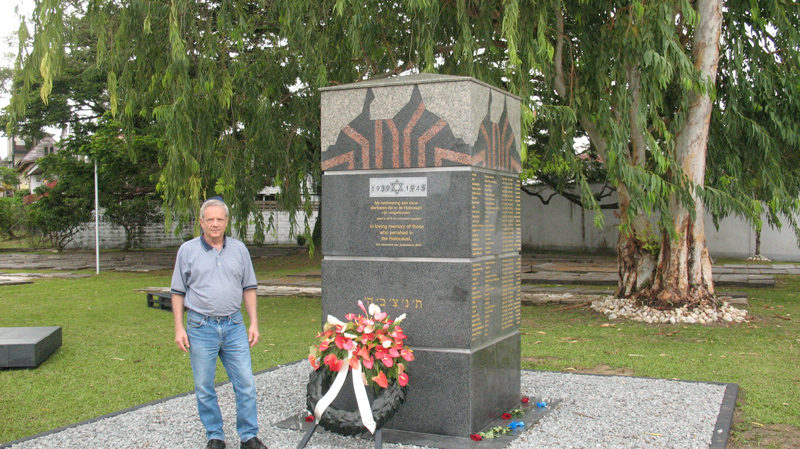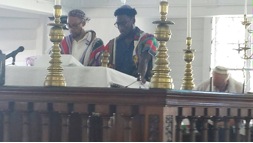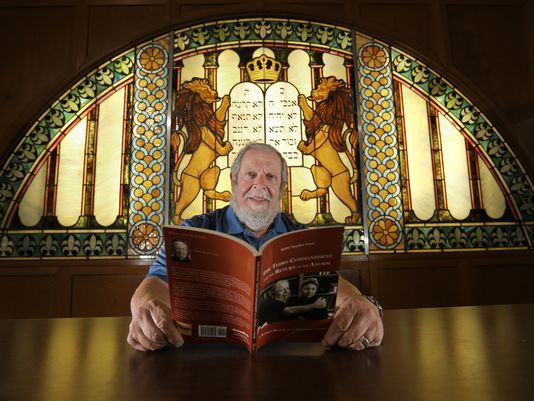
Several rivers come together in Suriname. It is also a place of cultural convergence. Though it is the smallest country in South America, bordered by French Guiana, Guyana, and Brazil, its population is one of the continent’s most diverse. Among its many peoples is a small community of Jews.
Jewish history in Suriname began in the 1630s. In Portugal, the Inquisition left Jews no choice but to convert to Christianity, unlike the Spanish Inquisition which gave Jews the option to leave Spain. Those Portuguese Jews who could do so went into exile. Many escaped to Holland in 1600 where freedom of religion was introduced. From there, in 1639 and 1652, two groups of Jews made their way to Recife in northern Brazil, and on to what is now Suriname. The groups settled in Thorarica and Cassipora Creek, on the banks of the Suriname River. The Jews established sugar plantations which became the backbone of the country’s economy.
In 1652, Sir Francis Willoughby, the British Governor-General for the West Indies claimed the country for England and recognizing the Jews’ importance to the colony, the British colonial government granted them special privileges: freedom of religion, permission to build synagogues and Jewish schools, the right to their own court of justice, and a private civic guard. These special privileges made Jews of Suriname the only Diaspora community ever to have complete political autonomy before the founding of the State of Israel.
In 1664, after the French occupied Cayenne (French Guyana), a third group of 200 Jews followed the Amsterdam-born colonizer David Nassy to Suriname. In 1667, Holland and England signed the Second Breda Treaty. As part of the agreement, Suriname was given to Holland in exchange for New Amsterdam (today’s New York City) that went to England. The Dutch retained the special Jewish privileges. In addition, David Nassy was granted by the Dutch the right to establish a colony he called Jodensavanne, (Jewish Savannah), also known as “The Portuguese Jewish Nation” or “Jerusalem on the River”. The Jews from Thorarica and Cassipora moved to Jodensavanne.
For over 100 years the Jews enjoyed freedom and prosperity. By 1737, Jews owned 115 of Suriname’s 400 plantations, and hundreds of slaves. The success didn’t last forever. Between 1765 and 1795, social, political, and financial changes caused the collapse of the plantation economy. Most Jews left the Jodensavanne and moved to the new Capital city Paramaribo, where they traded their agricultural past for new lives as professionals, merchants , artisans, and peddlers. In 1832 on Sept. 10, a fire raged through Jodensavanne, destroying everything, including the 147-year-old synagogue. The jungle has reclaimed what little was left.
Today’s Jewish community is a remnant of the past, but is determined to survive. In 1999, the Sephardic and Ashkenazi Jewish communities merged, and changed from Orthodox to Liberal. There is no longer a rabbi; the cantor directs the services at the magnificent Neve Shalom Synagogue, built in 1835. In 2008, the community completed the renovation of the 148-year-old Mikvah with the help of donations. Currently, the community is made up of about 100 members. Recently, the community completed the renovation of the former Rabbi’s apartment, and it is now rented to tourists and guests, a tempting spot for a fascinating visit.
Kulanu Canada is helping this historic community in many ways. In 2016, Canadian funds helped to create a Holocaust Memorial Monument commemorating the 105 Surinamese Jews who died at the hands of the Nazis, and we’ve provided financial help to support the importing of matzoh and kosher wine for Passover.


